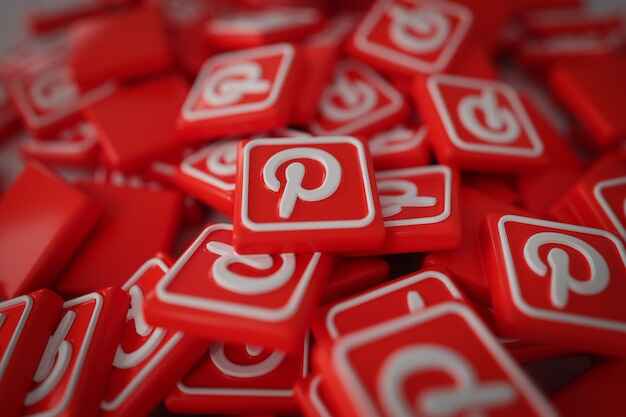-

Step-by-Step Guide to Becoming a Social Media Specialist: Skills, Tools, and Career Tips January 12, 2025
-

AI-Powered Social Media Marketing January 10, 2025
-

How Can an Expert in Social Media Increase LinkedIn Engagement? January 05, 2025
-

How Social Media Networks Have Helped in Building Pinterest Careers January 03, 2025
-

Instagram Creator Studio: A Game-Changer for Content Creators January 01, 2025

Everything You Need to Know About Facebook Marketing
In the ever-evolving landscape of digita marketing, Facebook has established itself as a cornerstone platform for businesses seeking to connect with their audiences. With over 3 billion users worldwide, Facebook remains the most popular social network, making it an essential tool for marketers.
However, navigating this vast platform requires a well-thought-out strategy and an understanding of the various tools available. This article will delve into acebook marketing, exploring its nuances, tools, strategies, and how small businesses can leverage it effectively in 2024 and beyond.
Facebook Marketing
Facebook marketing encompasses a range of activities aimed at promoting products or services on the Facebook platform. It involves creating content that resonates with your target audience, engaging with them through comments and messages, and utilizing Facebooks advertising capabilities to reach a broader audience.
Understanding Facebook Marketing
At its core, Facebook marketing is about building relationships with potential customers. Unlike traditional advertising, which often interrupts consumers, Facebook allows brands to engage users in a more meaningful way. By sharing valuable content, responding to inquiries, and participating in discussions, businesses can foster loyalty and trust among their audience.
The platforms algorithms favor engagement, meaning that posts that generate likes, shares, and comments are more likely to be seen by a larger audience. Therefore, crafting compelling content is crucial. Businesses must understand their audiences preferences and tailor their messaging accordingly.
The Importance of Audience Targeting
One of the standout features of Facebook marketing is its robust targeting options. Marketers can segment their audience based on demographics, interests, behaviors, and even location. This level of precision allows businesses to deliver personalized messages to specific groups, increasing the likelihood of conversion.
For example, a local coffee shop can target ads to users within a certain radius who have shown interest in coffee-related content. This targeted approach not only improves ad performance but also maximizes return on investment (ROI).
The Role of Engagement Metrics
Measuring success in Facebook marketing goes beyond just tracking likes and shares. Engagement metrics such as click-through rates, conversion rates, and customer feedback are vital indicators of campaign effectiveness. By analyzing these metrics, businesses can refine their strategies and focus on what resonates with their audience.
Engagement metrics also provide insights into customer behavior. For instance, if a particular type of post consistently garners high engagement, businesses can create more content in that vein. Conversely, low-performing posts can be re-evaluated or discarded altogether.
Facebook Ads
Facebook Ads are a powerful component of Facebook marketing, allowing businesses to reach a wider audience through paid promotions. These ads can appear in users news feeds, stories, and even in the right-hand column of the desktop version of Facebook.
Types of Facebook Ads
There are several types of Facebook Ads, each designed to achieve different marketing objectives. Some common formats include:
- Image Ads: Simple yet effective, image ads showcase a single image along with a caption and call-to-action button.
- Video Ads: Video ads allow brands to tell their story in a dynamic way, capturing attention more effectively than static images.
- Carousel Ads: These ads enable businesses to showcase multiple images or videos in a single ad unit, allowing users to swipe through them.
- Collection Ads: Ideal for e-commerce, collection ads feature a cover image or video followed by several product images, encouraging users to browse and shop directly from the ad.
Setting Up Facebook Ads
Creating Facebook Ads involves several steps. First, businesses need to define their campaign objective, whether it is brand awareness, lead generation, or sales. Next, they should identify their target audience using Facebooks targeting options.
Once the audience is set, businesses can choose their ad format and design the creative elements. It is essential to craft compelling copy and visuals that resonate with the audience. Finally, setting a budget and schedule for the ad campaign is crucial to manage costs effectively.
Measuring Ad Performance
After launching a Facebook Ads campaign, monitoring its performance is critical. Facebook provides detailed analytics through Ads Manager, allowing businesses to track key metrics such as impressions, clicks, and conversions. By analyzing this data, marketers can make informed decisions about optimizing their campaigns for better results.
If certain ads are underperforming, adjustments can be made to targeting, creative elements, or bidding strategies. Continuous testing and optimization are key to maximizing the effectiveness of Facebook Ads.
Facebook Marketing Tools
To streamline and enhance Facebook marketing efforts, various tools are available that cater to different aspects of the process. These tools can help businesses manage their social media presence, analyze performance, and create engaging content.
Social Media Management Tools
Social media management tools like Hootsuite and Buffer allow businesses to schedule posts, monitor engagement, and analyze performance across multiple platforms, including Facebook. These tools save time and ensure consistent posting, which is essential for maintaining audience engagement.
Additionally, many of these tools offer analytics features that provide insights into audience behavior and post performance. By leveraging these insights, businesses can refine their content strategy and optimize their posting schedule for maximum impact.
Content Creation Tools
Creating visually appealing content is crucial for Facebook marketing. Tools like Canva and Adobe Spark enable businesses to design eye-catching graphics, infographics, and videos without requiring advanced design skills. These tools come with templates and user-friendly interfaces, making it easy for anyone to create professional-looking content.
Moreover, video editing tools like Animoto and InVideo allow businesses to produce engaging video content quickly. Since video content tends to perform well on Facebook, investing in these tools can significantly enhance a brands marketing efforts.
Analytics and Reporting Tools
Understanding the effectiveness of Facebook marketing campaigns is essential for continuous improvement. Tools like Facebook Insights and Google Analytics provide valuable data on audience engagement, traffic sources, and conversion rates. By regularly reviewing these analytics, businesses can identify trends and adjust their strategies accordingly.
Furthermore, third-party analytics tools like Sprout Social and Socialbakers offer comprehensive reporting features that aggregate data from multiple social media platforms. This holistic view enables businesses to assess their overall social media performance and make informed decisions.
Facebook Marketing App
The Facebook Marketing App is a mobile application designed to help businesses manage their marketing efforts on the go. This app allows users to create and manage ads, track performance, and engage with their audience directly from their smartphones.
Features of the Facebook Marketing App
The Facebook Marketing App offers several features that simplify the marketing process. Users can create new ad campaigns, select their target audience, and set budgets—all from their mobile devices. This flexibility is particularly beneficial for small business owners who may not have access to a computer during the day.
Additionally, the app provides real-time notifications about ad performance, allowing users to respond quickly to any changes in engagement or spending. This immediacy helps businesses stay agile and adapt their strategies as needed.
Benefits for Small Businesses
For small businesses, the Facebook Marketing App can be a game-changer. It enables entrepreneurs to manage their marketing efforts without needing extensive technical knowledge or resources. The apps user-friendly interface makes it accessible for individuals who may not have a dedicated marketing team.
Moreover, the ability to track performance on the go allows small business owners to make data-driven decisions quickly. They can identify which ads are performing well and allocate their budgets accordingly, maximizing their ROI.
Integrating with Other Tools
The Facebook Marketing App can be integrated with other tools and platforms, enhancing its functionality. For instance, businesses can connect the app with their e-commerce platforms to run targeted ads based on customer behavior. This integration streamlines the marketing process and ensures that businesses can capitalize on every opportunity to engage with their audience.
Facebook Marketing Plan
A well-structured Facebook marketing plan is essential for achieving success on the platform. This plan outlines the goals, strategies, and tactics that a business will use to promote its products or services effectively.
Defining Goals and Objectives
The first step in creating a Facebook marketing plan is defining clear goals and objectives. These could include increasing brand awareness, generating leads, driving website traffic, or boosting sales. Having specific, measurable goals allows businesses to track their progress and evaluate the effectiveness of their marketing efforts.
It is important to align these goals with the overall business objectives. For instance, if a company aims to increase sales by a certain percentage, its Facebook marketing plan should focus on strategies that drive conversions.
Identifying Target Audience
Understanding the target audience is crucial for crafting a successful Facebook marketing plan. Businesses should conduct thorough research to identify their ideal customers, including demographics, interests, and online behaviors. This information will inform the content strategy and ad targeting.
Creating buyer personas can be a helpful exercise in this regard. By outlining the characteristics, preferences, and pain points of different segments of the audience, businesses can tailor their messaging to resonate with each group.
Developing Content Strategy
Content is at the heart of any Facebook marketing plan. Businesses should outline the types of content they will create, including posts, videos, and ads. It is essential to strike a balance between promotional content and value-driven content that engages the audience.
Additionally, businesses should consider the frequency and timing of their posts. Regularly posting content keeps the audience engaged and increases visibility in the news feed. Experimenting with different posting times can help identify when the audience is most active.
Facebook Marketing for Small Business
Facebook marketing presents unique opportunities for small businesses to connect with their audience and grow their brand. With its vast user base and powerful targeting options, Facebook can level the playing field for smaller companies competing against larger corporations.
Building Brand Awareness
For small businesses, establishing brand awareness is often a top priority. Facebook provides an excellent platform for showcasing products and services to a broad audience. By creating engaging content that reflects the brands personality, small businesses can capture the attention of potential customers.
Utilizing Facebook Ads can further amplify brand visibility. With relatively low costs compared to traditional advertising, small businesses can run targeted ad campaigns that reach users who are most likely to be interested in their offerings.
Engaging with the Community
Facebook is inherently social, making it an ideal platform for small businesses to engage with their local community. Responding to comments, participating in local groups, and sharing community-related content can help build strong relationships with customers.
Additionally, hosting Facebook events or live sessions can foster a sense of connection and provide value to the audience. For example, a local bakery could host a live baking demonstration or offer special discounts to Facebook followers.
Leveraging Facebook Insights
Small businesses can benefit greatly from Facebook Insights, a tool that provides data on post performance, audience demographics, and engagement metrics. By analyzing these insights, businesses can make data-driven decisions and refine their marketing strategies.
For instance, if Facebook Insights reveal that certain types of posts generate higher engagement, businesses can focus on creating more of that content. Similarly, understanding the demographics of the audience can help tailor marketing messages to better align with their interests.
Creating Compelling Content
Content creation is a critical aspect of Facebook marketing. Small businesses should focus on producing high-quality, visually appealing content that captures attention and encourages interaction. This includes using eye-catching images, writing engaging captions, and incorporating calls-to-action.
It is also beneficial to share user-generated content, such as customer reviews or photos of satisfied clients. This not only provides social proof but also fosters a sense of community around the brand.
Budgeting and Bidding
Budgeting for Facebook Ads is crucial for small businesses to ensure they get the most out of their marketing efforts. Setting a budget that aligns with the business financial capabilities and goals is important. Facebook allows businesses to set daily or lifetime budgets, giving them control over their spending.
Additionally, understanding bidding strategies can help optimize ad performance. Businesses can choose between automatic bidding, where Facebook optimizes bids to get the best results, or manual bidding, where they set their own bid amounts.
Conclusion
Facebook marketing is a powerful tool for businesses of all sizes, offering a range of features and tools to help brands connect with their audience, drive engagement, and achieve their marketing goals. By understanding the fundamentals of Facebook marketing, leveraging its advertising capabilities, and utilizing various tools, businesses can create effective marketing strategies that deliver results.
For small businesses, Facebook provides an accessible platform to build brand awareness, engage with the community, and drive growth. With the right approach and a well-defined marketing plan, businesses can harness the full potential of Facebook to reach their target audience and achieve success in the digital landscape.
For more insights and tips on Facebook marketing and other social media strategies, visit .MarketingProInsider.com
Comment